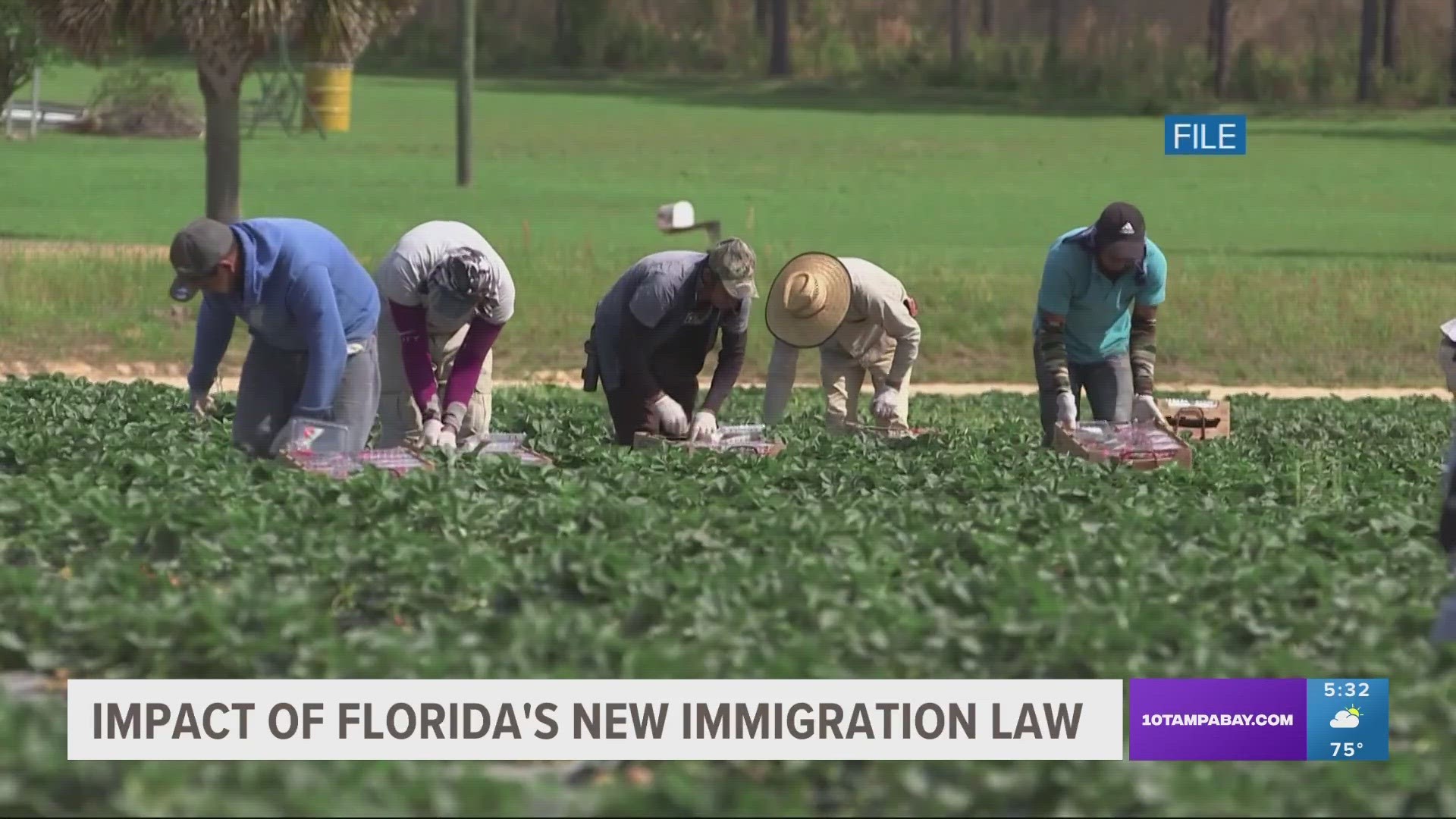TALLAHASSEE, Fla. — In just over a month, legislation that Florida Gov. Ron DeSantis calls the strongest stance against illegal immigration will go into effect.
This law will require companies with 25 or more employees to E-Verify the legal status of their employees. It imposes enforceable penalties for businesses employing people living here illegally and enhances penalties for human smuggling.
According to the U.S. Census, in Pinellas County, 10.6 percent of the population is Hispanic or Latino.
"I believe that most people here are here legally, the ones that aren't, are trying very hard to get here legally," Eli Gonzalez, the president of the Hispanic Chamber of Commerce, said. "You know, they got here illegally. But now there's just this process that they're in the middle of there, and they would be caught in the crossfire with this bill."
When describing what the process looks like to gain legal status in the U.S., Gonzalez said it's tough.
"The process is not easy. The process is slow, slower than it should be," he said. "There's so much red tape. It puts a lot of stress on the Hispanic community."
Gonzalez points out that many of the people living in Pinellas County illegally work the jobs most wouldn't want to work.
"Hospitality, landscaping, restaurants," Gonzalez continued. "A lot of these industries are going would be impacted. And again, there's not gonna be anybody else to fill those shoes...I think a lot of people that don't think they will be impacted will be impacted. Because a lot of the services that they're used to are just going to disappear."
As Tampa Bay booms, there's a needed workforce to build that growth.
"I would say it's severe," Steve Cona said. He's the president and CEO of Associated Builders and Contractors.
Cona is talking about the shortage of workers in construction.
"For the entire state of Florida itself, we're going to need about another 500,000 skilled tradespeople within the next five years," Cona said.
Cona said SB 1718 won't have the impact some predict.
"We've had to comply with those laws, like I said, for decades," Cona said in reference to E-verify. "So while I think 27 percent of our workforce is Hispanic, and out of that 27 percent, the vast majority of those folks are here legally and are American citizens. So it's, it's not as dramatic as people are thinking."
The newly passed legislation also prohibits local governments from issuing ID cards to people lacking permanent legal status, invalidates ID cards issued to people in the U.S. illegally, and requires hospitals to collect and submit data on the costs of providing health care to those living in the U.S. without legal permission.
Malique Rankin is a general assignment reporter with 10 Tampa Bay. You can email her story ideas at mrankin@10tampabay.com and follow her Facebook, Twitter, and Instagram pages.

